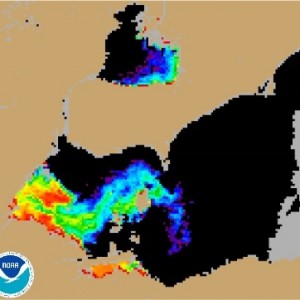The Stream, August 4: New Sustainable Development Goals Revealed
The Global Rundown |
The United Nations unveiled a new set of Sustainable Development Goals to address world problems like hunger, poverty, and water management, and the United States released a new plan to cut climate change pollution. California registered a large “rain debt”, while monsoon rains in India caused deadly floods and landslides. Oil pollution is a persistent problem in Venezuela’s Lake Maracaibo, and large hydropower projects face growing opposition in Brazil.
“Power plants are the single biggest source of the harmful carbon pollution that contributes to climate change. But until now there have been no federal limits on the amount of that pollution those plants can dump into the air. Think about that.”–U.S. President Barack Obama, on rules announced by his administration Monday aimed at curbing greenhouse gas emissions, especially from coal-fired power plants. The plan was called the “biggest step” by a president to cut climate change-inducing pollution. (Guardian)
By The Numbers |
$3.3 trillion to $4.5 trillion Amount countries will need to spend each year to meet the new United Nations Sustainable Development Goals, which will tackle issues like water management and hunger. The goals are set to be adopted in September. Reuters
75 people Number killed in floods and landslides in eastern India, while thousands have been displaced. The monsoon rains, amplified by a cyclone, also forced dam operators to release more water downstream. Reuters
Science, Studies, And Reports |
California so far missed about 51 centimeters (20 inches) of precipitation during its drought, equal to the amount the state usually receives in a year, according to a report by NASA. A lack of extreme rainfall events is the primary cause of the “rain debt”. Yale Environment 360
On The Radar |
Oil and gas leaks continue to pollute Venezuela’s Lake Maracaibo, a brackish bay known as the largest lake in South America. Falling oil prices have further eroded the government’s ability to clean up the lake’s waters. Bloomberg
Large hydropower projects slated for Brazil’s Amazon could face a more difficult approval process following the controversy surrounding the Belo Monte dam’s construction. Human rights activists are particularly concerned about indigenous communities that could be displaced by the dams. Inter Press Service
A news correspondent for Circle of Blue based out of Hawaii. She writes The Stream, Circle of Blue’s daily digest of international water news trends. Her interests include food security, ecology and the Great Lakes.
Contact Codi Kozacek






Leave a Reply
Want to join the discussion?Feel free to contribute!